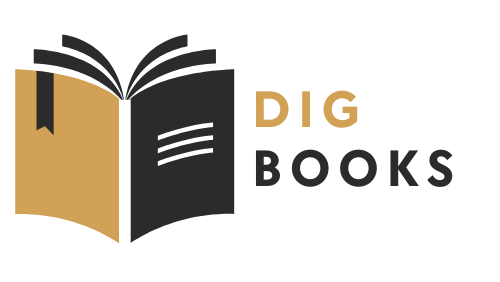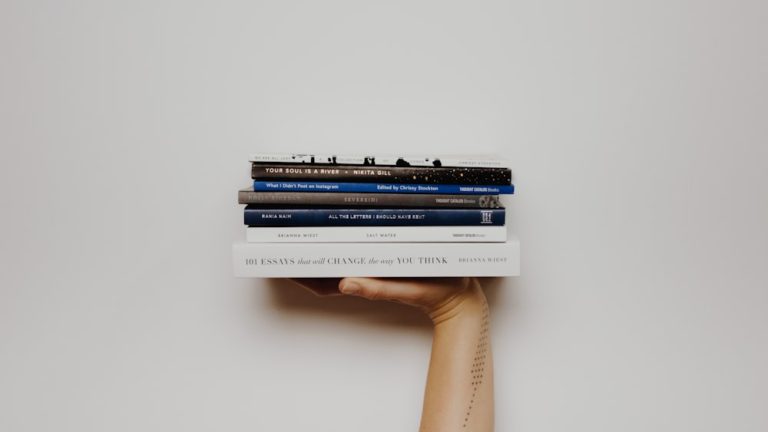13 Essential Power-Packed Best Books About Mindfulness
13 Essential Power-Packed Best Books About Mindfulness
In our bustling world, the pursuit of inner calm and presence is more relevant than ever. Enter the realm of mindfulness, a practice that roots us in the present moment, fostering peace and clarity in our daily lives. Among the myriad of resources available to guide us on this journey, books about mindfulness stand out for their depth, accessibility, and the richness of experiences they offer. This collection of the best books about mindfulness has been meticulously curated to cater to both novices and seasoned practitioners, diving deep into the essence of being truly present. Whether you’re looking to embark on a new path of self-discovery or deepen your existing practice, these books are powerful companions in the pursuit of a more mindful life.
Key Points:
- Mindfulness books offer diverse perspectives and practices for inner calm and presence.
- Wherever You Go, There You Are by Jon Kabat-Zinn is recommended for beginners seeking practical mindfulness applications.
- The Miracle of Mindfulness by Thich Nhat Hanh emphasizes mindfulness as a way of life, beyond mere meditation.
- Mindfulness in Plain English by Bhante Henepola Gunaratana provides clear and practical guidance on Vipassana meditation.
- The Mindful Way Workbook by John Teasdale, Mark Williams, and Zindel V. Segal is structured to help manage depression through mindfulness.
- Self-Compassion by Kristin Neff explores overcoming societal pressures and psychological issues with self-kindness.
- The Untethered Soul by Michael A. Singer offers actionable guidance on achieving inner peace and freedom through practical exercises.
Unveiling the World of Mindfulness Through Books
The world of mindfulness opens up through the pages of insightful books that serve as gateways to a more centered and peaceful existence. These texts, penned by some of the most revered names in the field, offer a diverse range of perspectives and practices. From the scientific underpinnings of mindfulness to its Buddhist roots, each book is a treasure trove of knowledge waiting to be discovered. They invite us to explore the tranquil waters of mindfulness, offering guidance, solace, and transformation along the way. Let us delve into these literary havens and emerge more connected, aware, and present.
1. Wherever You Go, There You Are by Jon Kabat-Zinn

Jon Kabat-Zinn’s “Wherever You Go, There You Are” stands as a cornerstone in the landscape of mindfulness literature. Written with a secular/scientific approach, it distills the essence of mindfulness in a manner that is both accessible and profound. The author, the creator of a mindfulness-based stress reduction program at the University of Massachusetts Medical Center, skillfully navigates the reader through the practical applications of mindfulness in reducing stress and enhancing self-awareness. [1]
Pro: The book’s strengths lie in its easy-to-read style and short, digestible chapters, making the profound practice of mindfulness approachable for everyone. It serves as an excellent starting point for those new to mindfulness, offering insight into mindful eating, daily living, and meditation. [2]
Contra: Some might find the book’s content a bit dated, given its original publication in the 1990s. While mindfulness practices stand the test of time, newer scientific evidence on the topic is not extensively covered.
I recommend this book to you if:
- You’re a beginner in the journey of mindfulness.
- You appreciate practical applications of mindfulness in daily living.
- You seek a scientific perspective on mindfulness without the religious undertones.
- You’re interested in incorporating mindful eating and stress reduction techniques into your routine.
2. The Miracle of Mindfulness by Thich Nhat Hanh

In “The Miracle of Mindfulness”, Thich Nhat Hanh invites readers into a calmer state of mind, offering a beautiful entry into the practice of mindfulness. This book presents mindfulness not just as a practice but as a way of living, integrating it into everyday activities like eating and walking. The reader is gently coaxed into the art of living fully in the present, a teaching that may sound simple, but is profoundly life-changing. [3]
Pro:
- Offers deep insights into mindfulness as a way of life, beyond just meditation.
- Encourages integration of mindfulness into daily activities, making it accessible.
- Written by Thich Nhat Hanh, a respected Zen master and peace activist, adding deep credibility and richness to the teachings.
Contra:
- Might be too idealistic or broad for readers looking for very specific, step-by-step mindfulness exercises.
- The abstract nature of the content could be challenging for beginners in mindfulness to immediately apply.
- Readers looking for a quick fix to stress or seeking immediate tangible benefits might find the book’s slow, steady approach challenging.
I recommend this book to you if:
- You’re seeking to understand the essence of mindfulness beyond mere practices.
- You value integrating mindfulness into everyday life, rather than keeping it confined to meditation sessions.
- You appreciate philosophical insights and are patient with your self-improvement journey.
3. Mindfulness in Plain English by Bhante Henepola Gunaratana

“Mindfulness in Plain English” provides an exceptional introduction to Vipassana meditation, combining clarity of language with profound insights. Bhante Henepola Gunaratana, through this book, aims to demystify mindfulness and meditation, making complex Buddhist principles accessible to everyone. It’s a cornerstone read for those looking to start their meditation journey, offering not just the theory but practical applications for daily life.
Pro:
- Extremely clear and straightforward language, making complex topics accessible.
- Offers practical advice and exercises, ideal for beginners in mindfulness and meditation.
- Incorporates fundamental Buddhist principles in a way that resonates with a modern audience.
Contra:
- Some chapters may seem unnecessary for those already convinced about the benefits of meditation.
- Occasionally uses language that could be seen as oversimplifying or misrepresenting complex philosophical concepts.
- Certain instructions, like meditation postures and preparatory exercises, may be intimidating for beginners.
I recommend this book to you if:
- You are new to meditation and looking for a comprehensive yet digestible guide.
- You value insights from Buddhist teachings but prefer them presented in a practical, relatable manner.
- You’re ready to embark on a detailed and thorough exploration of mindfulness and are looking for a guide that covers both the spiritual and practical aspects.
4. The Mindful Way Workbook by John Teasdale, Mark Williams, and Zindel V. Segal

“The Mindful Way Workbook” not only complements the reading of “The Mindful Way Through Depression” but stands on its own as a life-saving manual for those battling with depression. Crafted by John Teasdale, Mark Williams, and Zindel V. Segal, this 8-week program is heartily recommended for anyone willing to commit to a process that promises gradual, yet profound, changes. It doesn’t sell false hope or quick fixes but offers a structured and supportive path towards healing.
Pro:
- Provides a structured, practical 8-week program that’s easy to follow.
- Continues to offer benefits and insights well beyond the initial 8 weeks.
- Offers a tangible connection between the practice of mindfulness and its benefits in managing depression.
Contra:
- Requires a considerable commitment of time and effort, which might be challenging for some.
- Some may find the course’s structure rigid or too linear for their personal journey.
- Its specific focus on depression may not appeal to those looking for a more general introduction to mindfulness.
I recommend this book to you if:
- You are battling depression and looking for a methodical approach to managing it.
- You value structured programs with clear goals and measurable outcomes.
- You’re committed to integrating mindfulness into your daily life as a long-term strategy for well-being.
5. Self-Compassion by Kristin Neff

In “Self-Compassion”, Kristin Neff embarks on a journey to dismantle the systemic suppression of women within our society, offering a beacon of hope to those striving to find their way out of it. However, it’s a delightful revelation that although the book initially seems tailored for women, its essence and teachings resonate just as profoundly with men. It’s a universally relatable exploration of self-kindness that transcends gender, guiding readers to introspectively analyze and confront societal pressures and psychological issues.
Dr. Neff’s approach towards self-compassion is both empathetic and empowering, inviting readers to embrace their humanness with an open heart. Nonetheless, the book’s wording choice in certain narratives, notably around sensitive topics, has stirred some bewilderment. This highlights a potential mismatch in expectation vs. expression, where the language employed might seem at odds with the book’s progressive ethos, dimming its otherwise bright insightfulness.
Pro:
- Offers deep insight into overcoming societal pressures and psychological issues.
- Resonates with both women and men, broadening its audience reach.
Contra:
- Certain wording choices concerning sensitive topics may detract from the book’s overall impact.
I recommend this book to you if:
- You’re seeking ways to cultivate self-kindness and empathy.
- You’re interested in understanding the psychological and sociological aspects of self-compassion.
- You value insights that resonate across gender lines.
6. The Untethered Soul by Michael A. Singer

In “The Untethered Soul”, Michael A. Singer presents a step-by-step guide to discovering inner peace and freedom that is not tied to external circumstances. The book’s rise to prominence came from its powerful word-of-mouth spread, eventually capturing Oprah Winfrey’s attention and featuring in a notable interview on Oprah’s Super Soul Sunday series. Singer’s profound insights into the nature of the self and the mechanics of the mind are presented with clarity, guiding readers towards a deeper sense of existential peace.
What sets this book apart is its practical application of spiritual concepts, teaching readers to remain open-hearted and connected to their inner source of joy and peace. However, the journey Singer outlines requires introspection and the willingness to observe one’s mental chatter from a distance – a task easier said than done. As challenges arise, Singer reassures that with awareness and practice, the endless dialogue in our minds can lead to profound inner transformation and liberation.
Pro:
- Provides clear, actionable guidance on achieving inner peace.
- Insights resonate deeply, fueling genuine personal growth.
Contra:
- The necessity for deep introspection and mental discipline may be challenging for some.
I recommend this book to you if:
- You’re on a quest for inner peace and freedom, regardless of life’s external circumstances.
- Spiritual growth through practical exercises piques your interest.
- You’re ready to confront and observe your mental chatter to achieve lasting tranquility.
7. Waking Up by Sam Harris

“Waking Up: A Guide to Spirituality Without Religion” by Sam Harris embarks on the ambitious endeavor of demystifying spirituality, separating it from religious dogma to reveal a universally accessible framework for understanding consciousness and the human mind. Harris boldly asserts that our spiritual essence lies not within rituals or doctrines but within our own thoughts and perceptions of the world around us. He proposition that conscious self-awareness and meditation can lead us to profound happiness is both enlightening and inspiring, suggesting that true contentment is within our grasp.
However, Harris does not shy away from challenging prevalent notions of happiness, encouraging a deeper interrogation of what it means to be truly fulfilled. He posits that happiness is not a static state to be achieved but a byproduct of our continual quest for self-understanding and inner harmony. This perspective offers a fresh lens through which we can examine our lives and our approaches to mental and emotional wellness.
Pro:
- Offers a secular approach to spirituality, making it accessible to a broader audience.
- Emphasizes the role of mindfulness and meditation in achieving psychological well-being.
Contra:
- Some may find the dismissal of traditional religious frameworks for spirituality disconcerting.
- The conceptualization of happiness presented might challenge deeply held beliefs.
I recommend this book to you if:
- You’re interested in exploring spirituality beyond religious contexts.
- Self-awareness and meditation appeal to you as means for personal growth.
- You’re open to reevaluating your understanding of happiness and fulfillment.
8. Zen Mind, Beginner’s Mind by Shunryu Suzuki

Shunryu Suzuki’s “Zen Mind, Beginner’s Mind” stands as a testament to the profound impact Zen practice can have on one’s life, conveying complex Zen teachings in accessible modern American English. The author’s unique ability to distill traditional Zen wisdom into clear, concise insights offers a transformative reading experience, particularly appealing to those embarking on their spiritual journey.
The book is a compilation of talks given by Suzuki, making it a series of digestible chapters. While primarily philosophical, touching lightly on meditation, “Zen Mind, Beginner’s Mind” is highly suitable for readers of all backgrounds, emphasizing that enlightenment and understanding extend beyond the confines of regular Buddhist practice. Key concepts such as self-change, attachment, and letting go are explored, resonating with our daily lives in profound ways.
Pros:
- Accessible language that demystifies complex Zen teachings.
- Short, standalone chapters that are easy to digest and reflect upon.
- Philosophical depth that provides significant insights beyond traditional meditation guidance.
Cons:
- Some concepts like non-dualism might be challenging for newcomers to fully grasp.
- Lack of detailed meditation instruction could leave those looking for practical guidance wanting more.
I recommend this book to you if:
- You’re seeking spiritual growth through the wisdom of Zen.
- You appreciate philosophical insights that challenge and expand your worldview.
- You’re a practitioner of meditation looking for inspirational philosophical backdrop to your practice.
9. Mindfulness: An Eight-Week Plan for Finding Peace in a Frantic World by Mark Williams and Danny Penman

“Mindfulness: An Eight-Week Plan for Finding Peace in a Frantic World” strikes a harmonious chord between the scientific grounding of mindfulness and its practical application in our day-to-day lives. Crafted by a team of esteemed researchers, the program is tailored to skeptics and newcomers, gracefully transitioning them from doubt to devoted practice.
The book not only offers an eight-week detailed plan but also ventures beyond, exploring how to embed mindfulness into the fabric of our existence. From de-stressing to breaking bad habits and facing fears, the practices elucidated in this guide aim to foster a deep-seated transformation, equipping readers with tools to tackle life’s vagaries with grace and resilience.
Pros:
- Evidence-based approach backed by extensive scientific research.
- Comprehensive plan for beginners to systematically embrace mindfulness.
- Real-world applicability of mindfulness techniques to everyday situations.
Cons:
- Finding time for practice may be challenging for some readers.
- Initial complexity for those new to mindfulness concepts.
I recommend this book to you if:
- You are intrigued by the scientific underpinnings of mindfulness.
- You’re looking for a structured, step-by-step guide to incorporate mindfulness into your life.
- You wish to reduce stress and anxiety, fostering a more compassionate and attentive mindset.
10. The Mindful Brain by Daniel Siegel

In “The Mindful Brain,” Daniel J. Siegel M.D. unwraps the enigma of the adolescent brain, articulating with tremendous clarity the intricate connection between brain development, emotional growth, and mindful practices. This book casts a bright spotlight on the challenges and triumphs of the adolescent years, offering a guiding hand to parents, educators, and everyone involved in supporting young individuals through this pivotal stage of life.
Siegel’s book goes beyond mere tips, instead immersing readers in a deep dive into the essence of adolescence. Through dispelling myths and grounding discussions in scientific research, it arms caregivers with knowledgeable insights and practical tools to facilitate a smoother journey through adolescence – a period fraught with turmoil but ripe with potential.
Pros:
- Detailed exploration of adolescent brain development.
- Practical advice, based on scientific research, tailored for caregivers.
- Helpful tips for communicating and establishing healthy relationships with adolescents.
Cons:
- Some readers may desire more focus on mindfulness practices specifically.
- Primarily targeted at an audience dealing with adolescents, which might limit its appeal.
I recommend this book to you if:
- You interact with teenagers regularly and seek insight into their development.
- You’re a caregiver looking for effective communication strategies.
- You’re interested in the science behind adolescence and how mindfulness can aid in navigating its challenges.
11. Full Catastrophe Living by Jon Kabat-Zinn

Jon Kabat-Zinn’s “Full Catastrophe Living” is a comprehensive guide that dives deep into the practice of mindfulness as a route towards stress reduction and overall well-being. The book’s length, at over 600 pages, touches upon how to use the wisdom of your body and mind to face stress, pain, and illness, which might seem daunting at first. However, Kabat-Zinn’s expertise in meditation shines through as he presents a variety of meditation techniques early in the book, offering readers the freedom to choose what suits them best.
Pros and Cons:
Pro:
- Offers a variety of meditation techniques, including body scan, yoga, and walking meditation.
- The book is divided into manageable subchapters, allowing readers to skip to the parts most relevant to them.
- Incorporates patient success stories that can provide motivation and proof of the techniques’ efficacy.
Contra:
- The length of the book might be overwhelming for some readers.
- Some readers found the content to be somewhat repetitive, suggesting the book could be condensed.
I recommend this book to you if:
- You are looking for a comprehensive guide on mindfulness and stress reduction.
- You appreciate having a variety of techniques to choose from.
- You’re not deterred by longer reads and can appreciate detailed explorations of meditation practices.
12. Altered Traits by Daniel Goleman and Richard J. Davidson

“Altered Traits” offers an insightful and rigorous look into how meditation can transform our minds and lives, substantiated by decades of research. Authors Daniel Goleman and Richard J. Davidson, both pioneers in psychological research, delve into the effects of meditation on the human brain and behavior, presenting a solid foundation for the practice beyond its ancient spiritual roots. Their exploration covers the history of meditation research, the variety of studies conducted, and the intriguing trends that have emerged.
Pros and Cons:
Pro:
- Provides a science-backed exploration of meditation’s benefits.
- Reviews and summarizes current research findings in a digestible format for readers.
- Offers perspectives for both beginners and seasoned practitioners of meditation.
Contra:
- The latter part of the book tends to repeat information, which some readers found unnecessary.
- Could be trimmed down for a more concise read, according to some reviewers.
I recommend this book to you if:
- You are interested in the scientifically proven benefits of meditation.
- You enjoy reading about psychological research and its implications on practical activities like meditation.
- You’re a skeptic looking for evidence before integrating meditation into your daily routine.
13. The Mindful way through Depression by Mark Williams, John Teasdale, Zindel Sagal, and Jon Kabat-Zinn

“The Mindful Way Through Depression” stands out as a powerful resource for those grappling with depression and for anyone seeking a deeper enjoyment of life’s moments. This book is not just about overcoming depression; it’s about empowering oneself to live a more conscious, fulfilling life. Through mindfulness practices, the authors guide readers in becoming more aware of their thoughts, feelings, and memories – and more importantly, in recognizing them as separate from their sense of self.
Pros and Cons:
Pro:
- The book encourages an active, participatory approach to mindfulness and self-awareness.
- Provides practical, easy-to-learn concepts and exercises, making mindfulness accessible to anyone.
- Offers guidance on separating one’s identity from their thoughts and feelings, providing a sense of liberation.
Contra:
- The title might deter those who do not identify with having depression but could still benefit from the book’s teachings.
- Some concepts may require time to practice and integrate into daily life, which might challenge readers looking for quick solutions.
I recommend this book to you if:
- You are dealing with depression or seeking ways to find joy and satisfaction in life.
- You’re interested in developing a deeper level of self-awareness and consciousness.
- You appreciate books that provide clear guidance and practical exercises for integrating mindfulness into everyday life.
Deepening Your Practice: Beyond the Books
Embarking on a mindfulness journey isn’t solely confined to the pages of a book. While the wealth of knowledge and insights shared by revered authors in the field offer a solid foundation, the true essence of mindfulness unfolds through active engagement in daily life. Beyond the structured guidance of mindfulness literature, lies a path that beckons individual exploration and personalized practice, enabling a deeper connection with the present moment and a more intimate understanding of oneself.
Exploring Mindfulness in Daily Life
Mindfulness can seamlessly weave into the fabric of everyday life, transforming mundane tasks into opportunities for presence and awareness. Start by integrating mindfulness into routine activities such as eating, walking, or even doing the dishes. Focus on the sensations, the textures, and the feelings they evoke. This practice not only anchors you in the now but also cultivates a sense of gratitude for the simple things in life.
Another vital aspect is maintaining a mindfulness journal. Jotting down your experiences can provide insightful reflections on your mindfulness journey. It acts as a mirror, reflecting your progress and deepening your understanding of how mindfulness impacts your thoughts, emotions, and overall well-being. This habit encourages self-observation and self-inquiry, crucial components for nurturing a mindful way of being.
Integrating Mindfulness into Your Routine
Infusing your daily routine with mindfulness doesn’t require upheaving your entire schedule. Start small, with intentional pauses throughout the day to reconnect with your breath and center your focus. These brief moments of stillness can significantly reduce stress and increase mental clarity.
- Begin the day with a mindfulness exercise. Whether it’s a five-minute meditation upon waking or setting an intention for the day, starting on a mindful note can positively influence your entire day.
- Create mindfulness cues. Associate certain actions or objects as reminders to be mindful. It could be every time you open a door, reminding yourself to step into the present moment.
- End the night in reflection. Before sleep, take a few moments to acknowledge three things you’re grateful for. Gratitude intensifies mindfulness by highlighting the abundance present in our lives.
By nurturing these practices, mindfulness becomes more than just a concept; it evolves into a lifestyle. The journey from absorbing the knowledge contained in books to incorporating mindfulness into the daily routine marks the transition from learning to living mindfully, fostering a more engaged, aware, and fulfilled existence.
FAQs
1. How do I start with mindfulness if I’m a complete beginner?
If you’re a complete beginner, starting with mindfulness means easing into the practice step by step. Firstly, create a quiet space for yourself where you can sit comfortably without distractions.
Secondly, pick one of the mindfulness books aimed at beginners, such as “Mindfulness in Plain English” by Bhante Henepola Gunaratana or “Wherever You Go, There You Are” by Jon Kabat-Zinn, as these provide a gentle introduction to the principles and practices of mindfulness.
Lastly, remember that mindfulness is about being present and non-judgmentally aware of your moment-to-moment experience, so begin by dedicating a few minutes each day to observe your breath or sensations in your body, practicing patience and kindness towards yourself as you learn.
2. Can reading books on mindfulness replace meditation practice?
Reading books on mindfulness cannot replace actual meditation practice, but they serve as a complementary tool.
While books provide valuable insights and theoretical knowledge, engaging in daily meditation is crucial for experiencing the benefits of mindfulness firsthand. Reading can equip you with a solid foundation and understanding, but consistent practice is what truly embeds mindfulness into your daily life.
3. How long does it take to see the benefits of mindfulness?
To see the benefits of mindfulness typically varies from person to person, but some may notice changes as soon as after a few sessions.
Regular practice can lead to noticeable improvements in stress reduction, increased focus, and emotional well-being within a few weeks. The key is consistency and patience, as deep-seated changes in perception and well-being can take longer to manifest.
4. Are there mindfulness books for children and teenagers?
Yes, there are mindfulness books designed specifically for children and teenagers. These books help introduce mindfulness in an engaging and age-appropriate way, often incorporating stories, exercises, and illustrations that resonate with younger audiences. They can be a wonderful resource for parents and educators seeking to imbue a sense of calm and awareness in their children’s lives.
Conclusion
Exploring mindfulness through reading offers a rich tapestry of insights and practices that can deepen one’s understanding and experience of the present moment. Each book listed provides a unique doorway into the art of mindfulness, whether you are a beginner just setting foot on this path or a seasoned practitioner seeking to deepen your practice.
In a world brimming with distractions and stress, the best books about mindfulness serve as beacons of light, guiding us back to our inner peace and strength. They equip us with the tools and understanding necessary to navigate the complexities of modern life with a calmer and more open heart.
Thank you for allowing me to accompany you on this journey of discovery. May your path be filled with insight, joy, and serenity. Happy reading and do not hesitate to share your own experiences with mindfulness in the comments below. Warmest wishes, Emma.







